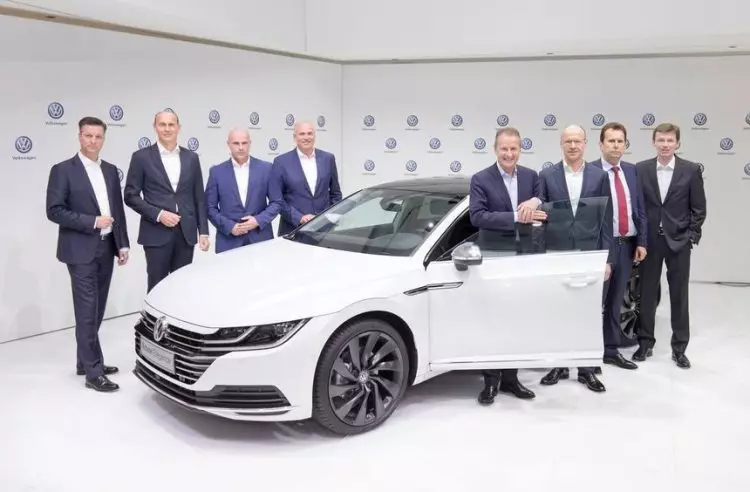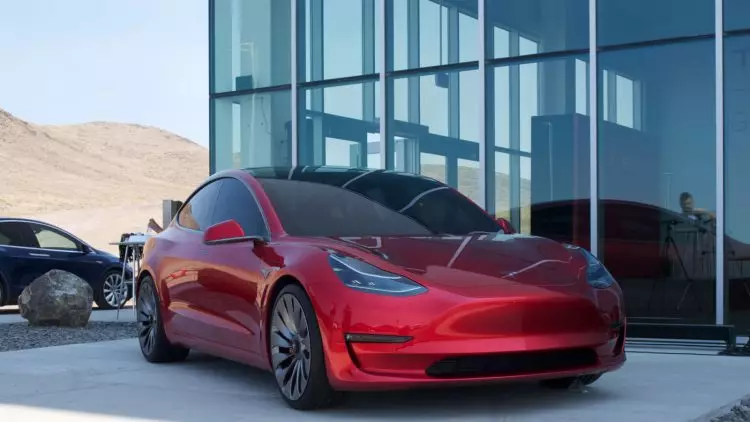This is how Herbert Diess, director of the Volkswagen brand, defined the threat that Tesla poses at the “first” annual conference for the German brand.
Despite eight decades of existence, it is the first time that Volkswagen holds an annual conference dedicated only and only to the Volkswagen brand without involving the other brands in the group. The brand presented its first quarter financial results and spoke about the future of the brand.
The future depends on the implementation of the plan Transform 2025+ , set in the Dieselgate aftermath. This plan seeks not only to guarantee the sustainability of the Volkswagen Group as a whole, but also to transform the brand (and the group) into the world leader in electric mobility.

In this plan, which will be implemented in three phases, we will see, until 2020, a brand focus on operational efficiency, on improving productivity and increasing operating margins.
From 2020 to 2025, Volkswagen's goal is to be the market leader in electric vehicles and connectivity. Another objective is to simultaneously increase profit margins by 50% (from 4% to 6%). After 2025, mobility solutions will be Volkswagen's main focus.
Tesla's threat
Volkswagen's plans to sell one million electric vehicles in 2025 – up to 30 models will be launched during this period – may find Tesla's biggest and potential brake. The American brand is preparing to launch, later this year, the Model 3 , and promises an attack price in the US, starting at $35,000.
The American builder is, however, too small. Last year, it sold almost 80,000 units, compared to the Volkswagen group's 10 million.
However, with the Model 3, Tesla promises to grow exponentially by the end of 2018, reaching 500,000 cars per year, and aims to double that value at the beginning of the next decade. This of course, in line with Elon Musk's plans.

Between the two plans, there is a common point: the two brands coincide in the number of units they want to sell per year. However, the way to get there is diametrically opposite. Which one will work better: a start-up with proven electric cars, but with big challenges in the scale of its production, or a traditional builder, already with enormous scale, but that has to transform its operations?
Herbert Diess, Volkswagen CEO, was adamant that Volkswagen will have huge advantages over Tesla in terms of costs, thanks to its MQB and MEB modular platforms – for electric vehicles -, which allow to distribute costs over a considerably larger number of models and brands.
“ is a competitor we take seriously. Tesla comes from a high segment, however, they are descending from segment. It is our ambition, with our new architecture to stop them there, to control them” | Herbert Diess
Despite the abysmal differences in scale, Volkswagen's transition to electric mobility will require huge investments, hence costs. Not only do they have to invest in electrical technology, they will also have to maintain the level of investment in the evolution of internal combustion engines to face more restrictive emission standards.
“Anything Tesla does, we can top it” | Herbert Diess
NOT TO BE MISSED: The Automobile Reason needs you
According to Diess, these rising costs will be offset with a cost containment plan. This plan, already underway, will lead to a cut of 3.7 billion euros in annual costs and a reduction in the number of employees, globally, by 30,000 by 2020.Who will be the winner in conquering the market with electric cars? In 2025 we are back to talking.
Source: Financial Times
